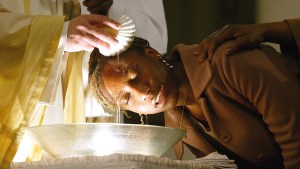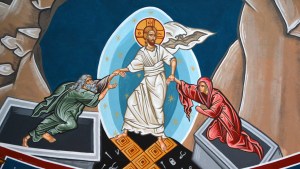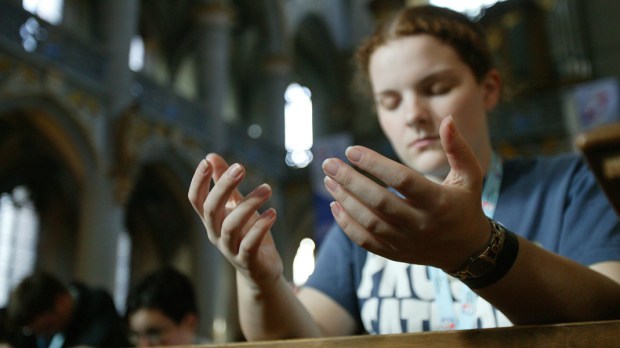After the commemoration of the Lord’s Passion on Good Friday, the church is engulfed in silence. The Eucharistic host is placed back in a tabernacle and remains there until the Easter Vigil on Saturday night.
In many churches a custom was developed where a tomb was created to place a statue of Jesus’ dead corpse and the lay faithful were then encouraged to remain in prayer before the sorrowful tomb. For most of history there were few, if any, public liturgies before the Easter Vigil, leaving the church completely silent from Good Friday afternoon all the way until the late evening hours of Holy Saturday.
For many centuries there was even a strict fast on Holy Saturday, permitting no food to be eaten in observance of this painful day. Many would stay in the church throughout the night of Good Friday, keeping Jesus company in the tomb.
A homily from the 2nd century confirms this general atmosphere in the church, “What is happening? Today there is a great silence over the earth, a great silence, and stillness, a great silence because the King sleeps; the earth was in terror and was still, because God slept in the flesh and raised up those who were sleeping from the ages. God has died in the flesh, and the underworld has trembled.”
One of the reasons for this “great silence” is to enter into the pain of Jesus’ death and the loss the apostles must have felt. Think about it for a minute.
While Jesus taught them continually about his resurrection, the apostles likely had some doubts, seeing the death of their master. They might have thought to themselves, “If he is the Messiah, why did he die? I thought he said he would rise from the dead?” In this way Holy Saturday is that day of doubt and sorrow, not knowing what to do or what to believe.
Even the Easter Vigil begins in silence, in the complete darkness of the church.
However, the good news is that Jesus, the light of the world, has truly risen and dispels the darkness and any doubts we may have had. The church erupts in pure joy at the Easter Vigil and music, bells and light lift up our hearts to God.
Only after experiencing the silence of Holy Saturday can we truly appreciate the loud and joyful celebrations of the Easter Vigil.
Every part of the Sacred Triduum has meaning, and when we are able to enter into it fully, our hearts are lifted up in a way that is difficult to describe.

Read more:
How did the early Christians celebrate the final days of Holy Week?

Read more:
Where did Jesus go on Holy Saturday?

